PM’s remake or break moment as he cedes ascendancy to the Coalition
Peter Dutton has become the central, dominating figure of federal politics as Labor falls into a political, policy and psychological vacuum.
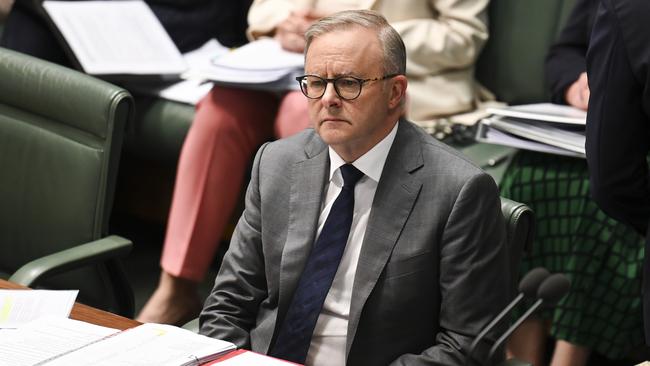
A besieged and tired Anthony Albanese, suffering a public backlash against his overseas travel, looks to be dispirited and out of touch – even when he’s not out of the country – as a legacy of the crushing defeat of his priority proposal for an Indigenous voice to parliament.
The Prime Minister has lost political momentum and leadership authority as the government fails on policy and politics because of an inability to anticipate and predict obvious public and business reactions to government actions and events.
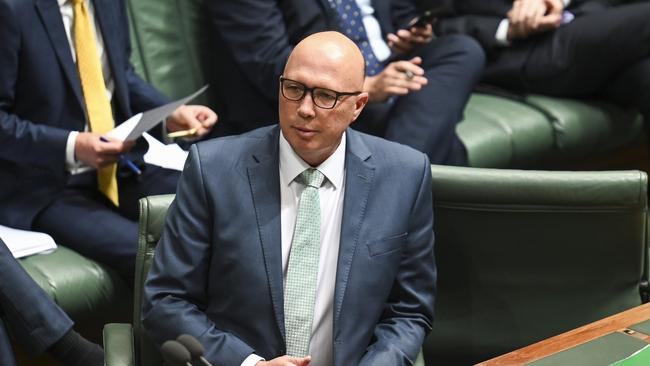
The list starts with the referendum loss in mid-October; the rising cost of living and the increasing cost of the renewable energy plans to cut carbon emissions; industrial law changes; and the domestic security ramifications of the Hamas terror attack on Israel.
In the past two weeks Albanese and his ministers have had trouble dealing with Chinese government aggression in the South China Sea and the High Court’s order to release more than 100 criminals including murderers, rapists and child sex offenders.
The lack of appreciation of how certain things will be perceived and the lack of preparation on how to deal with fairly obvious questions and reactions have sent the government into a vortex of confusion, indecision and failures that have hurt Labor’s image.
All the polling trends, including on economic management, show that Labor’s extended political honeymoon is well and truly over.
Albanese’s loss of personal support is on a failing trajectory similar to that of his predecessors Kevin Rudd and Julia Gillard at the same time in the electoral cycle, just as the ALP’s primary support is falling and the Coalition’s primary vote is rising.
Even the so-called unelectable Dutton is resurgent, although a long way short of Albanese as preferred prime minister.
That Labor is in a mess going into the long summer break halfway through its first term and showing signs of desperate panic about the Opposition Leader’s rise is indisputable at the end of 2023.
The real questions for next year are whether Albanese can lead a unified, disciplined Labor team into a new era of positive agendas come the resumption of parliament in February-March and whether Dutton can continue to score off ministerial mistakes while developing a credible alternative for voters.
This week Albanese, in a reflective moment that perhaps betrayed some personal anxiety and seemed to give a warning about leadership change, mused during an interview with 2SM presenter John Laws that at the next election he would be the first prime minister since John Howard more than 20 years ago to be seeking to win two elections in a row.
Albanese pointed out that since Howard’s victory in 2004 no prime minister had won successive elections because they were replaced as leader or lost the election.
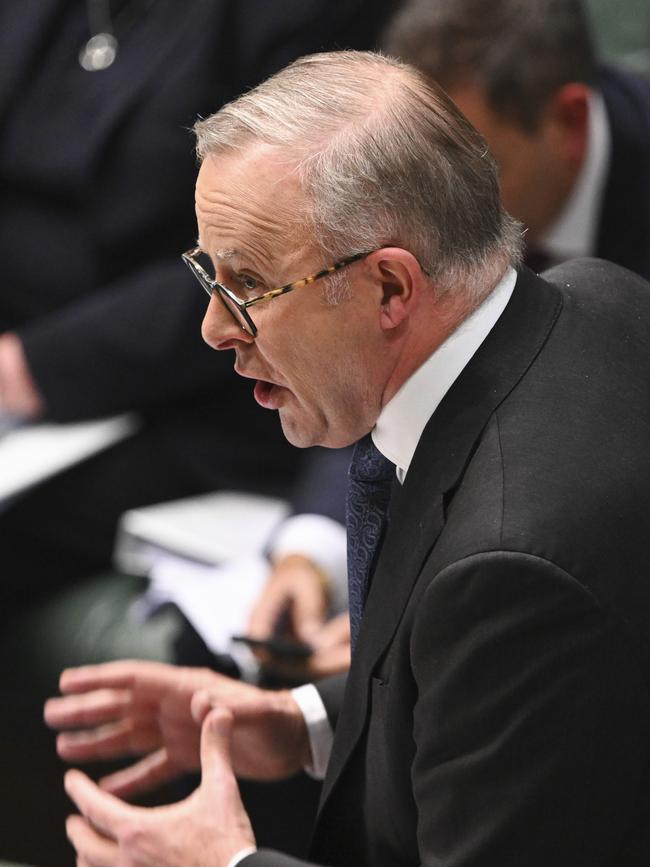
“We’ve had (Kevin) Rudd, (Julia) Gillard, (Tony) Abbott, (Malcolm) Turnbull, (Scott) Morrison and myself,” he said. “So, no one’s actually won two since John Howard. And that says something as well about just the pace of change and all of that.”
For his part, Dutton declared that he rejected the idea of a two-term strategy to get the Coalition back into government and was aiming at returning to the Treasury benches in just one term. Three weeks ago, Dutton grabbed the legislative agenda in Albanese’s absence and this week moved to control the political agenda with his bold declaration that he had only a “one-term election strategy” aimed at victory at the next election.
“From the moment we found ourselves in opposition, we have worked together, supported colleagues, and while no party could ever be expected to get everything right, we are in a much stronger position because of that strength and the unity of the partyroom,” Dutton told his Liberal colleagues at the last partyroom meeting of the year.
“Our strategy is one term, and for the sake of the Australian public, for the sake of our economy, to restore integrity to our national security and to make sure that we’re the best country that we can be. That is exactly the sole focus for me and for my team.”
While each leader was spruiking their chances and setting out a forward plan in the atmosphere of the end of this year and the halfway mark for the Albanese government, both recognise there is a long time to go until the next election – a half-Senate and House of Representatives election has to be called by May 2025.
But both also recognise that when the parliament resumes in February-March next year there will be immediate challenges that can shape the political agenda and electoral fortunes well into 2024.
For Albanese, the biggest challenge will be to restore order and remove the air of crisis that has enveloped the government in recent months and exposed the inadequacies of ministers as well his own stuttering leadership that projects an image of uncertainty and of being out of touch.
The February-March deadline for a government reset is essential in the pre-budget period. Both Rudd and Gillard, who had lost support in the October-November parliamentary sittings in the previous year, suffered an accelerated and fatal decline in public support when parliament resumed with elections due within a year.
It was the fear of losing the election and a spreading panic within the Labor caucus that fuelled the leadership removal of both Rudd and Gillard, who failed to recover lost ground in those early months.
A reset for Labor next year is possible as a result of the advantage of incumbency and the prospect of improving economic conditions, no matter how slightly.
There also will be pressure from Labor on Dutton to start to release his own alternative policies. One of the problems Labor has now is that there was a paucity of ALP policy before the election and the failure of the referendum has exposed that vacuum.
Albanese’s confidence and authority were shaken by his failure on the Indigenous voice to parliament referendum, which demonstrated his inability to read the national mood or persuade people to vote for his proposal.

Since that failure his forced travel agenda has entrenched the view that he doesn’t care about the cost-of-living pressures on households and has been unable to control or direct ministers who are making mistakes or embarking on ever riskier and unpopular programs.
Ministers sending mixed messages on the Hamas terror attacks on Israel and the invasion of Gaza amid a spike in anti-Semitism and increasingly offensive pro-Palestinian protests was another pressure point for Albanese, who on Thursday took the opportunity of the last parliamentary question for 2023 to “condemn the appalling” protests against visiting Israeli families in Melbourne on Wednesday night and appeal for “a bit more kindness in Australia”.
Albanese’s own refusal to say whether he personally raised the Chinese naval sonar attack on Australian sailors in international waters with President Xi Jinping at the Asia-Pacific Economic Co-operation meeting in San Francisco last month has made him look weak and dissembling, and his attempt to blame Dutton for the release of 142 criminals from immigration detention and claims the Liberal leader was “protecting pedophiles over children” were counter-productive.
The obvious failure of Immigration Minister Andrew Giles and Home Affairs Minister Clare O’Neil to prepare precautionary legislation to enable the control or re-detention of the rapists, murderers and child sex offenders released from immigration detention was another catastrophe in the past three weeks.
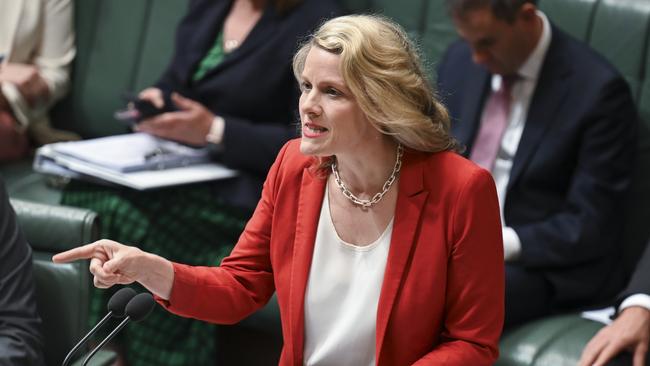
The failure to anticipate the ramifications of the High Court decision not only created public anxiety but also gave Dutton the opportunity to supersede the role of the absent Prime Minister and dictate the legislative and political agenda. Labor’s response to the immigration detention crisis was to direct personal vilification and vile defamatory slurs against Dutton instead of trying to deal urgently and competently with a crisis of public safety.
The campaign of accusing Dutton of “protecting pedophiles over children” reeked of overreach and smacked of panic as Labor’s deflection and distraction from the mistakes turned into a concerted government-wide political attempt to destroy the Opposition Leader.
As Dutton, a former policeman who has worked in the field, said: “I’ve arrested sex offenders before. It is one of my life’s passions to make sure that women and kids are safe and I feel very genuinely… about it.” Even in parliament Dutton repeatedly joined Albanese in decrying domestic violence and offences against children, at one stage defending an emotional Albanese from “political pointscoring” on the issue from teal independents. Dutton has pressed repeatedly for a royal commission into child sex abuse in remote areas in the Northern Territory and always supports government initiatives on domestic violence and child sex abuse.
Although some in the government wanted to continue the demonisation of Dutton as a protector of pedophiles and an apologist for child sex offenders, it was clear house Speaker Milton Dick was alert to the fact Labor had overreached and forced a reluctant O’Neil to withdraw the slur in parliament. Former Labor leader Bill Shorten also refused to parrot the lines given to MPs to destroy Dutton and wouldn’t repeat the slur about a protector of pedophiles. It was a measure of Shorten’s experience at times of internal stress and emotion that he did not mindlessly make things worse for Labor.
The government was enhancing Dutton’s influence and impact with its scrambling efforts to shift blame on to him and destroy his character. The unseemly parliamentary skirmish will recede into the background by early next year but the potential for much greater problems for Labor over undermining the principles of mandatory detention for illegal boat arrivals and unlimited immigration detention will linger.
For Dutton, who has timed his political strategy well and exploited Labor weaknesses, there is a greater challenge next year of preparing his own credible policies beyond the successful campaign against the referendum and a conversation about nuclear energy.
There may be hapless Labor ministers foundering in their own areas but Dutton is going to have to improve from a thin talent pool so that he can people a government bench with a better team.
Labor’s in a mess now and jumping at Dutton’s shadow, but if Albanese can restore equilibrium early next year the final days of 2023 will matter much less in the final days of 2024.


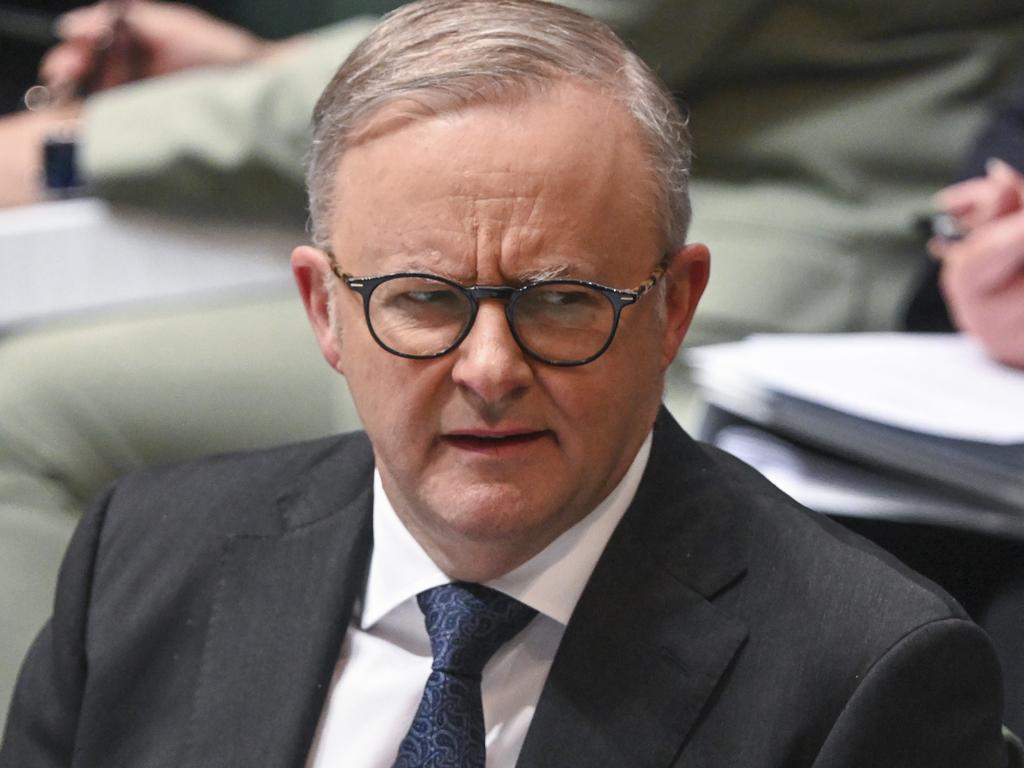



Peter Dutton has become the central, dominating figure of federal politics as the parliamentary year draws to a close because the Albanese Labor government has fallen into a political, policy and psychological vacuum, ceding ascendancy to the Coalition.